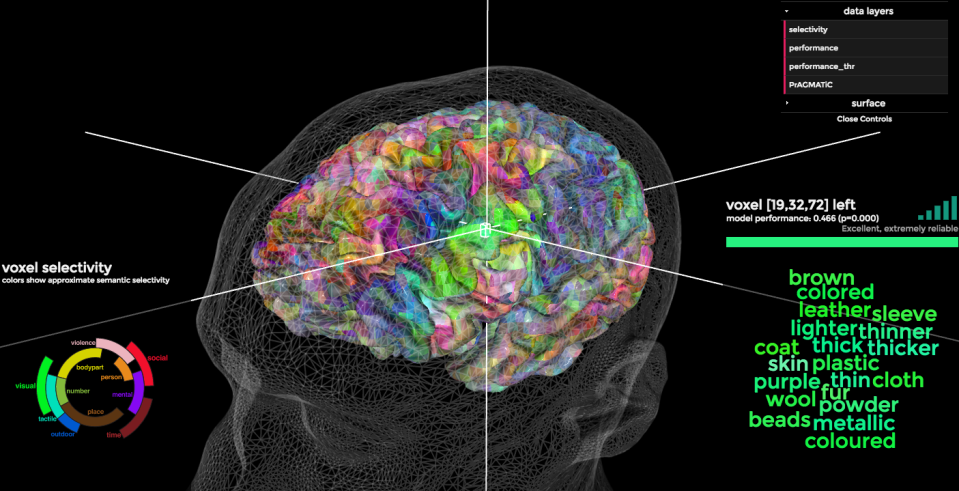Scientists use 'Moth Radio Hour' to map meaning across the brain
Language is far more complex than we realized.

Researchers at the University of California, Berkeley took on the complex task of mapping meaning along the cerebral cortex, the thin membrane that stretches across the entire brain, and their results suggest language is much more complex than previously thought. Seven volunteers listened to The Moth Radio Hour, a program where people share emotional personal tales, while lying in a functional MRI machine that tracked how their brains responded to 985 specific concepts, Science News says.
Researchers mapped the blood flow to 60,000 to 80,000 pea-sized regions across the cerebral cortex, resulting in a dense word map covering the entire brain. Turns out, some concepts showed up in several areas across the brain: "Top," for example, appeared in a section that handles clothing and one that deals with numbers.
Scientists previously thought large chunks of the brain handled different concepts separately, but this research suggests that meaning is more spread out, with concepts linked and dissected across the cerebral cortex in interwoven waves.
"These data suggest we need to rethink how the brain organizes meaning," Stanford University neuroscientist Russell Poldrack tells Science News.
This is just the beginning, though. All seven of the people tested were raised in Western societies and the sample size was too small to note any differences in gender. Next up, researchers want to repeat the study with 50 or 100 people from a range of backgrounds, Science News says. Check out their meaning map in a 3D, interactive model right here.

